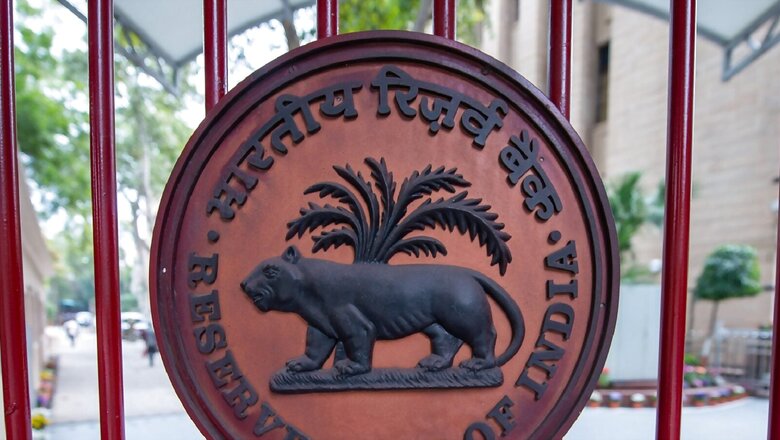
views
Accepting the recommendations of the expert committee, the Reserve Bank of India (RBI) has decided to adopt a simple four-tier regulatory framework with differentiated regulatory prescriptions to strengthen the Urban Co-operative Banks (UCBs).
A minimum net worth of Rs 2 crore for Tier 1 UCBs operating in a single district and Rs 5 crore for all other UCBs (of all tiers) has been stipulated to strengthen the financial resilience of the banks and enhance their ability to fund their growth.
As per the data reported by UCBs as on March 31, 2021, most of the banks already comply with the requirement.
The UCBs that do not meet the requirement, will be provided a glide path of five years with intermediate milestones to facilitate smooth transition to revised norms.
CRAR REQUIREMENT
According to the RBI circular, the minimum Capital to Risk (Weighted) Assets Ratio (CRAR) requirement for Tier 1 banks is retained at the present prescription of 9% under current capital adequacy framework based on Basel I. For Tier 2, Tier 3 and Tier 4 UCBs, while retaining the current capital adequacy framework, it has been decided to revise the minimum CRAR to 12% so as to strengthen their capital structure. The increase in CRAR requirement is reasonable as these UCBs do not have full capital charge for market risk and currently maintain no capital charge for operational risk. As per the data reported by the banks as on March 31, 2021, most of UCBs have CRAR more than 12% (1,274 banks out of 1,534). Further, the banks that do not meet the revised CRAR will be provided with a glide path of three years for achieving the same in a phased manner. Accordingly, these banks will have to achieve a CRAR of 10% by the financial year ended March 31, 2024, 11% by March 31, 2025; and 12% by March 31, 2026.
NEW BRANCHES
To boost growth opportunities in the sector, it has been decided to introduce automatic route for branch expansion to UCBs which meet the revised Financially Sound and Well Managed (FSWM) criteria and permit them to open new branches up to 10% of the number of branches as at the end of the previous financial year.
While the branch expansion proposals under the prior approval route will also continue to be examined, as the process will be simplified to reduce the time taken for granting approvals for opening new branches.
HOUSING LOANS, WORKING GROUP
In case of housing loans, it has been decided to assign the risk weights on the basis of Loan to Value (LTV) Ratio alone which would result in capital savings. This will be applicable to all tiers of UCBs.
Revaluation Reserves will be considered for inclusion in Tier-I capital subject to applicable discount on the lines of scheduled commercial banks.
To examine the issues concerning recommendation for capital augmentation under the provisions of Section 12 of the Banking Regulation Act, 1949 (as amended) (as applicable to co-operative societies), a Working Group comprising the representatives from RBI, SEBI and Ministry of Co-operation, Government of India has been constituted.
The committee has also made certain recommendations regarding Umbrella Organization for UCB Sector which will be examined once the entity is fully operational.
THE EXPERT COMMITTEE
The RBI had constituted the expert committee on the UCBs on February 15, 2021, under the Chairmanship of former RBI Deputy Governor NS Vishwanathan, to examine the issues in urban cooperative banking sector, provide a medium-term roadmap, suggest measures for faster resolution of UCBs and recommend suitable regulatory/ supervisory changes for strengthening the sector by leveraging the recent amendments to Banking Regulation Act, 1949.
The report submitted by the expert committee was placed on the RBI’s website on August 23, 2021 inviting comments of stakeholders and members of public. The recommendations were examined for implementation after taking the feedback into account.
Read all the Latest News, Breaking News, watch Top Videos and Live TV here.
















Comments
0 comment